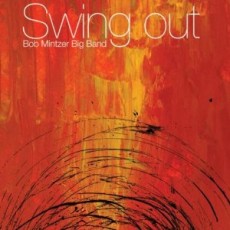
Daily Dose Of Jazz…
Bob Mintzer was born January 27, 1953 in New Rochelle, New York. After graduating from the Interlochen Arts Academy in 1970, he made his mark as a soloist, mainly on the tenor saxophone and bass clarinet but is also proficient on flute and the EWI (electronic wind instrument).
He is a member of the jazz-rock band the Yellowjackets but among jazz fans is even better known for his inspiring big band work since the early 1980s in the Word of Mouth Big Band and then as the leader of the Bob Mintzer Big Band. Before starting his own big band, Bob was a featured soloist and arranger with the Buddy Rich big band.
In 2008, Bob succeeded pianist Shelly Berg to hold the Bowen H. “Buzz” McCoy and Barbara M. McCoy Endowed Chair in Jazz Studies at the University of Southern California Thornton School of Music.
Mintzer has been nominated for thirteen Grammy Awards both for his solo work and big band recordings an his Homage to Count Basie won him a Grammy for the Best Large Ensemble in 2001. He has performed and/or recorded with a wide variety of artists ranging from Tito Puente, Buddy Rich, Thad Jones/Mel Lewis Big Band, James Taylor, The New York Philharmonic, National Symphony, American Saxophone Quartet, Art Blakey, Donald Fagan, Bobby McFerrin, Nancy Wilson, Kurt Elling, to Jaco Pastorius, Mike Manieri, and Randy Brecker.
Saxophonist, clarinetist, composer, arranger and bandleader Bob Mintzer continues to perform, tour and record as he explores funk and Latin domains with his big band.
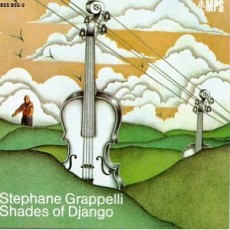
Daily Dose Of Jazz…
Stéphane Grappelli was born on January 26, 1908 in Paris, France. Losing both his parents he was accepted into Isadora Duncan’s dance school where he discovered his love for French impressionist music. His musical career began playing violin at age 12, attended the Conservatoire de Paris studying music theory and made his living busking on the streets of Paris and Montmartre.
While at the conservatory he worked as a silent film pianist and also playing the saxophone and accordion. Grappelli eventually gained fame in Paris as a violin virtuoso but piano was his other love. His early fame came playing with the Quintette du Hot Club de France with Django Reinhardt though the band disbanded in 1939 due to World War II. In 1940, a little known jazz pianist by the name of George Shearing made his debut as a sideman in Grappelli’s band.
After the war Stephane appeared on hundreds of recordings including sessions with Duke Ellington, Oscar Peterson, Michel Petrucciani, Claude Bolling, Jean-Luc Ponty, Stuff Smith, Toots Thielemans, Gary Burton, Joe Pass, Andre Previn and many, many others.
During the 1960s he played for cocktail hour at the Paris Hilton, recorded the title track of Pink Floyd’s “Wish You Were Here”, made a cameo appearance in “King of the Gypsies”, received the Grammy Lifetime Achievement Award in 1997 and was inducted into the Down Beat Jazz Hall of Fame.
Violinist Stephane Grappelli died in Paris after undergoing a hernia operation on December 1, 1997.
More Posts: violin
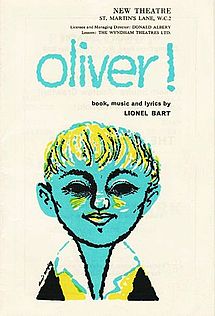
From Broadway To 52nd Street
Oliver! opened at the Imperial Theatre on January 6, 1963 and ran 774 performances. Lionel Bart wrote the book and the lyrics and composed the music. One of his songs, Where Is Love became a jazz favorite.
The Story: Musical adaptation of Dickens story in which a young Oliver, an orphan in a workhouse, asks for more of the meager gruel from a surprised matron. Punished for beating up another boy who made fun of his dead mother and locked in a coffin but he escapes. Living on the streets of London he is befriended by the Artful Dodger who introduces him to Fagin, a criminal teaching young boys to become pickpockets. The thieving children are manipulated by their leader and mentor Fagin, and the young Oliver, who through circumstances is forced into a life of crime. Greed of the workhouse caretakers leads to Oliver’s ultimate rescue by a kindly old gentleman who realizes Oliver is his great nephew. The musical, as is the book, was a powerful statement on the 19th century poverty, crime and government neglect crying out for social reform.
Jazz History: By the 1960s, most of the legendary clubs were razed or fell into disrepair. The last club there closed its doors in 1968. Today, the street is full of banks, shops, and department stores and shows little trace of its jazz history. The block from 5th to 6th Avenues is formally co-named “Swing Street” and one block west is called “W. C. Handys Place”.
The 21 Club is the sole surviving club on 52nd Street that also existed during the 1940s. The venue for the original Birdland at 1674 Broadway (between 52nd & 53rd), which came into existence in 1949, is now a “gentlemen’s club”. The current Birdland is on 44th Street, between 8th and 9th Avenues.
Sponsored By
www.whatissuitetabu.com
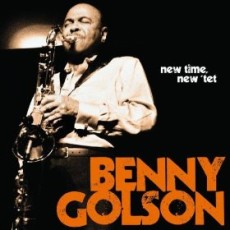
Daily Dose Of Jazz…
Benny Golson was born January 25, 1929 in Philadelphia, Pennsylvania. While in high school he played with several other promising young musicians, including John Coltrane, Red Garland, Jimmy Heath, Percy Heath, Philly Joe Jones and red Rodney. After matriculating Howard University, Benny joined Bull Moose Jackson’s R&B band where he met and learned about writing from pianist Tadd Dameron.
From 1953 to 1959 Golson played with Dameron’s band and then with the bands of Lionel Hampton, Johnny Hodges, Earl Bostic, Dizzy Gillespie and Art Blakey & The Jazz Messengers. While working with the Lionel Hampton band at the Apollo in 1956, Benny learned that his friend trumpeter Clifford Brown had died in a car accident. In honor, Golson composed “I Remember Clifford”.
From 1959 to 1962 Golson co-led the Jazztet with Art Farmer. Golson then left jazz to concentrate on studio and orchestral work for 12 years and during this period he composed music for such television shows as Ironside, Room 222, M*A*S*H and Mission: Impossible.
By the mid-1970s Golson returned to jazz playing and recording, he re-organized the Jazztet in 1983, was honored as a NEA Jazz Maser in ’95, made a cameo appearance in the Tom Hanks vehicle “The Terminal” that was related to his participation in the classic photo “A Great Day In Harlem”, received the Mellon Living Legend Legacy Award, the Outstanding Lifetime Achievement Award from the University of Pittsburgh International Academy of Jazz, in which he was also inducted into their Hall of Fame.
Since 1996 Howard University created and has awarded the prestigious Benny Golson Jazz Master Award to several distinguished jazz artists. As of 2007, Benny Golson, tenor saxophonist, composer and arranger in the bebop and hard bop genres continues to tour regularly. He is known for his jazz standards “Stablemates”, “Whisper Not”, “Killer Joe”, “Along Came Betty and “Are You Real”, that have been performed and recorded by countless jazz musicians.
More Posts: saxophone
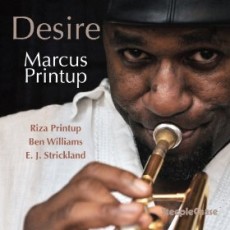
Daily Dose Of Jazz…
Marcus Printup was born on January 24, 1967 in Conyers, Georgia. His first musical experiences hearing the fiery gospel music his parents sang in church and didn’t discover jazz until he was a senior in high school.
He is a versatile musician who started playing trumpet in the fifth grade, played funk as a teenager, and while attending the University of North Florida on music scholarship, won the “International Trumpet Guild Jazz Trumpet Competition”, and was a member of a ten-piece group called “Soul Reason for the Blues”. In 1991 he met pianist Marcus Roberts, his mentor to this day, who introduced him to Wynton Marsalis, and was induction into the Jazz @ Lincoln Center Orchestra two years later.
Marcus has performed and/or recorded with Betty Carter, Dianne Reeves, Eric Reed, Cyrus Chestnut, Wycliffe Gordon, Carl Allen, Marcus Roberts among many others, not to mention a few of his projects as a leader, Song for the Beautiful Woman, Hub Songs, The New Boogaloo, Bird of Paradise, London Lullaby and his most recent, Desire.
Printup’s screen debut was in the 1999 movie “Playing By Heart” and also recorded on the film’s soundtrack. He tours annually with the Lincoln Center Jazz Orchestra, spending one-third of his year touring world wide, and nourishes his educator side by teaching youth and experienced musicians and contributing to several camps annually.
More Posts: trumpet


